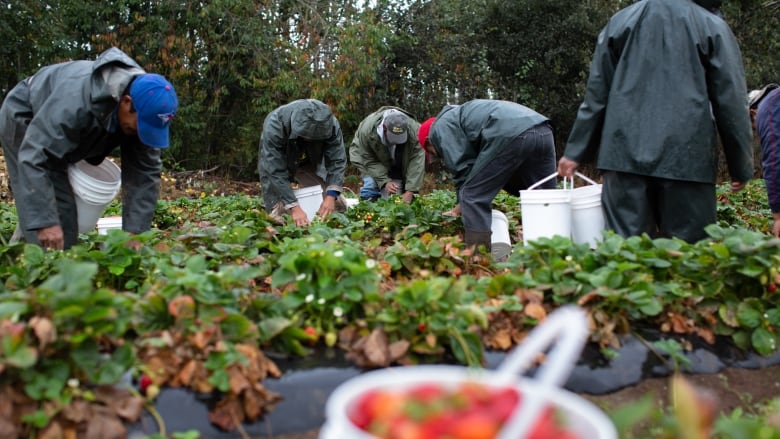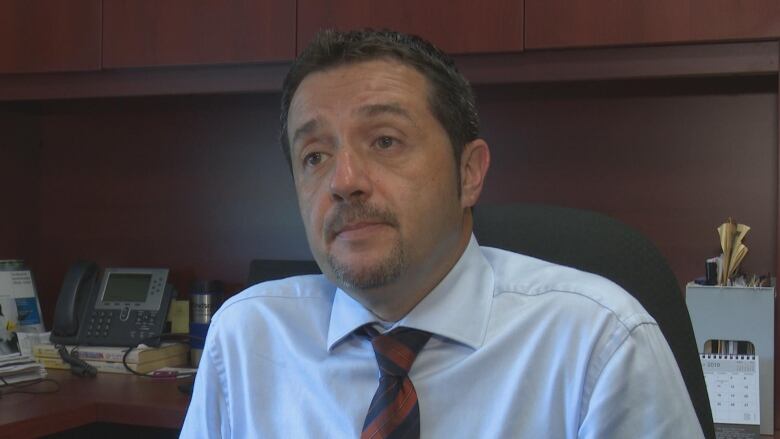Some local leaders fear looming crisis as migrant workers start to arrive in Windsor-Essex
'I don't think we're in the same position [as last year],' says greenhouse GM

As thousands of new migrant workers begin to arrive in Windsor-Essex, some local leaders fear a looming crisis lies ahead.
Last year, hundreds of migrant workers in the region contracted COVID-19 and two died after falling sick with the disease. As of Friday, 12 farmsin Leamington and Kingsville are in outbreak.
The Windsor-Essex County Health Unit also reported that 57 agri-farm worker cases are active and 104 more are in isolation.
As cases begin to ramp up while new workersarrive with the County of Essex estimating that between 600 and 700 new workers have already landed inthe region local officials worry that last summer will repeat itself.
Despite all levels of government implementing new strategies and providing extra funding, the question remains as to whether lessons were actually learned from 2020 and whether workers will be kept safe the second time around.
Up to 2,000 workers are expected in coming weeks, with 10,000 arriving by June.
Kingsville Mayor Nelson Santos said that some of the new workers have already shown up and tested positive for COVID-19, though CBC News could not confirm that.
He said he's concerned with how these workers are being integrated into the workforce and inspections on how they're being quarantined upon arrival.
Those inspections, he said, are done virtually and the government doesn't follow up in person, which leads him to question the integrity of the quarantine.
He added that they don't know where each worker issupposed to be quarantining and, as such, town officials cannot respond to those who might be breaking the rules.
"If we're being asked to enforce it, we can't, we don't have the information that's been required," Santos said. "The [Ontario Provincial Police] have told us their hands are tied, because they don't have the data."

Santos and Essex County Warden Gary McNamarasaid they put their concerns in a letter to the federal and provincial governments in the hopes that they will provide more guidance.
"We're asking the governments and the powers that be to utilize their requirements, strengthen them based on the experience that we've already gone through and bring that oversight," Santos said.
"[They've]allowed this program to continue with certain restrictions and guidelines ... and we're asking them to police it and bring forward the boots on the ground, the enforcement that they've approved."
'I don't believe we're in that same position'
But Joe Sbrocchi, general manager of Ontario Greenhouse Vegetable Growers (OGVG), says he doesn't believe that they're "in that same position" as last year.
"There are so many eyes on this that I find it strange that people think that that isn't happening. I don't get it," he told CBC News. "I don't think we're looking at the same situation that we saw in March and April of last year."
He said OGVG has worked with the Ontario Ministry of Agriculture, Food and Rural Affairs to develop tools and supports for farmers.
As for the quarantine process, Sbrocchi said it'sstraightforward: workers arrive and tell Canadian Border Services where they are headed, that information is passed to local law enforcement that will check in.
Yet he couldn't say whether inspections or check-ins on the workers were happening in-person or virtually.
He added that he's not aware of any new workers showing up and testing positive.
"If the question is do I think that people are acting inappropriately, I do not and I certainly wouldn't be supportive of it," he said. "Farms will do everything possible to be cooperative ... it's in their interest in every way possible ... We are doing everything possible to take care of this as best we can."

The province responded to Santos' letter and said they are closely working with federal and local authorities to "ensure there is a coordinated response when it comes to controlling the spread of COVID-19 on farms."
In November, the province announced 35 actionsto prevent and control the spread of COVID-19 on farms.
The actions required participation from farmers, workers, the government and the industry. Short-term solutions referred to the use of personal protective equipment,physical distancing practices, widespread adoption of screening practices and limiting the number of workers moving between farms.
A key long-term solution was better housing standards.
In an emailed statement to CBC News, the federal government said it has invested nearly $85 million to cover the cost of worker quarantines and that it has extended funding for Windsor's Isolation Recovery Centre until March 31.












_(720p).jpg)


 OFFICIAL HD MUSIC VIDEO.jpg)
.jpg)



























































































